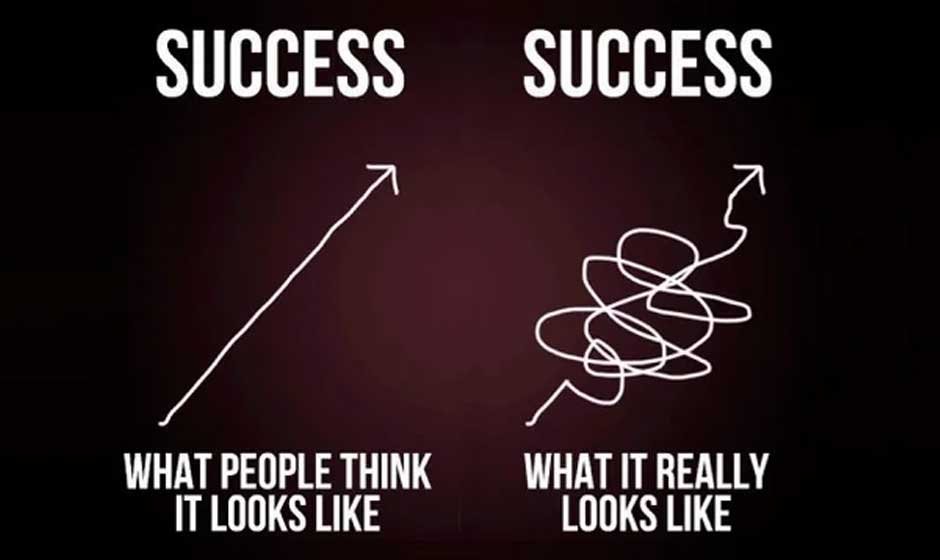Success isn’t just about the size of your bank account or climbing the corporate ladder anymore. It’s fascinating how our understanding of long-term success has evolved to include so many different aspects of life fulfillment. Take Harvard’s eye-opening 80-year study on adult development, it found that meaningful relationships and overall well-being trump financial achievements when it comes to predicting long-term success. This really shifts how we need to think about what it means to be truly successful.
Looking at people who’ve achieved remarkable things across different fields, some interesting patterns start to emerge. A revealing 2022 Gallup study showed that those who reached and maintained their definition of success shared some key traits; they kept their social connections strong, never stopped learning, and skillfully juggled different areas of their lives. Think about successful entrepreneurs like Sara Blakely of Spanx or Howard Schultz of Starbucks; they’re quick to point out that maintaining strong personal relationships was just as crucial to their long-term success as their business achievements.
The Five Pillars of Sustained Achievement
While having enough money certainly matters, it’s just one piece of a much larger puzzle. Recent studies have uncovered that people who achieve lasting success tend to excel in five key areas: they maintain financial health, take care of their physical well-being, keep their emotions in check, continuously grow professionally, and nurture meaningful relationships. Professional growth stands out as another crucial element, with successful individuals typically dedicating 5-10 hours weekly to learning and developing new skills.
Many professionals strategically manage their retirement planning through a pension rollover to ensure financial flexibility as they move between career phases. But growth isn’t just about formal education; it’s about mentorship, learning from peers, and hands-on experience. Look at Microsoft’s Satya Nadella, he transformed from a software engineer into a CEO by consistently investing in new leadership skills and staying adaptable throughout his journey.
Building Sustainable Success Practices
Creating lasting success habits isn’t something that happens by chance; it requires a thoughtful approach and steady dedication. The University of Pennsylvania’s research on behavior change reveals an interesting pattern among successful individuals: they set clear long-term objectives, break these down into manageable quarterly goals, and maintain daily habits that align with their bigger vision. You’ll often find successful executives following morning routines that combine physical exercise, strategic planning, and personal development.
Smart time management proves absolutely essential, with successful professionals carefully dividing their time across various life areas. C-suite executives maintain carefully structured weekly schedules, specifically setting aside time for family, health, professional development, and strategic thinking. This intentional balancing act helps prevent burnout while ensuring steady progress across all pillars of success.
Measuring Progress Beyond Traditional Metrics
Today’s approach to measuring success needs to be more sophisticated than ever before. Forward thinking organizations now use balanced scorecards that look at success through multiple lenses, including personal growth, impact on others, and societal contribution. Companies like Patagonia are leading the way by measuring success not just in profits, but also in environmental impact, employee satisfaction, and community contributions.
With personal success metrics, the picture needs to be equally comprehensive. Positive psychology research suggests that tracking factors like relationship quality, personal growth, and life satisfaction gives a more complete picture of long-term success than just looking at financial metrics. Many successful individuals now maintain personal dashboards to monitor their progress across health indicators, learning goals, relationship satisfaction, and financial objectives.
Navigating Challenges and Setbacks
The path to long-term success isn’t always smooth sailing. Many successful professionals face at least one major career setback, but their response to these challenges sets them apart. Resilient individuals see setbacks as valuable learning opportunities and keep their eyes on long-term goals, even when things get tough.
Building emotional resilience turns out to be absolutely crucial for sustained success. Many successful leaders point to their ability to maintain perspective during difficult times as a key factor in their long-term achievement. Take Richard Branson of Virgin Group. He’s faced numerous business failures but kept his entrepreneurial spirit alive by focusing on learning from each experience rather than letting it defeat him.
Conclusion
Long-term success is about taking a journey of continuous growth while balancing achievements across multiple life dimensions. It takes conscious effort to maintain financial stability, nurture relationships, protect health, and pursue personal development. The most successful people consistently show that sustainable achievement comes from juggling these various aspects while staying flexible and resilient when facing challenges. By taking a more holistic view of success and paying attention to all five pillars of achievement, anyone can work toward creating lasting success that goes beyond traditional definitions and makes a meaningful impact across all areas of life.
















